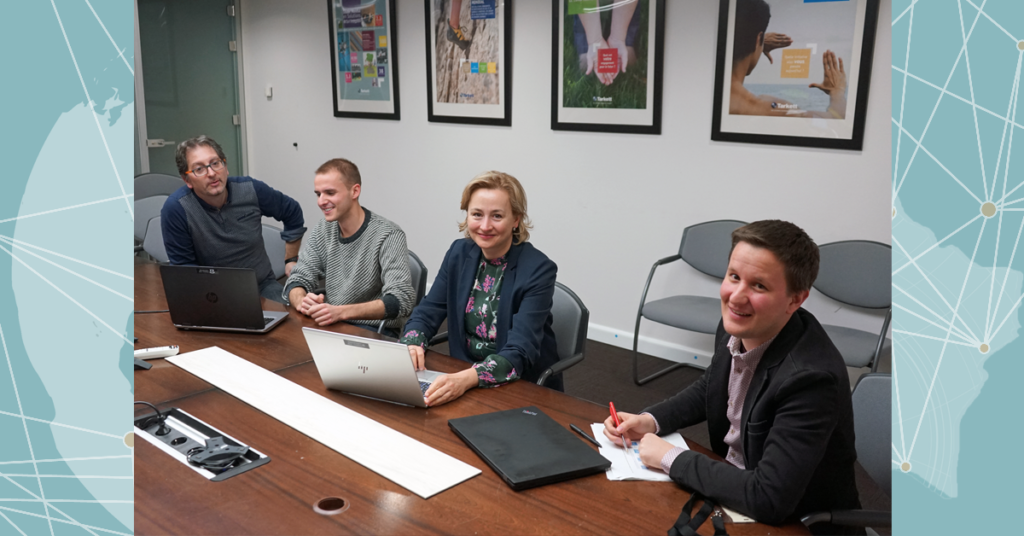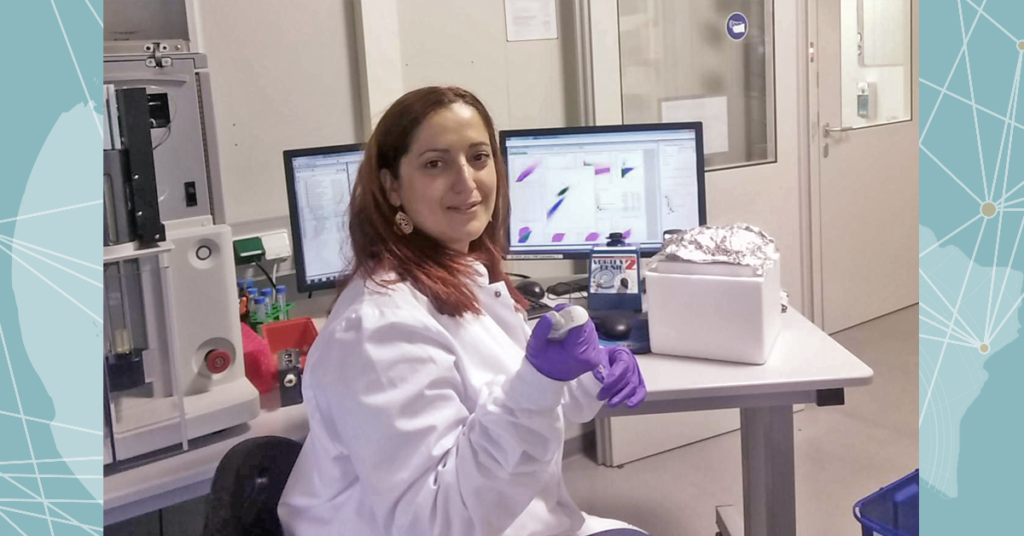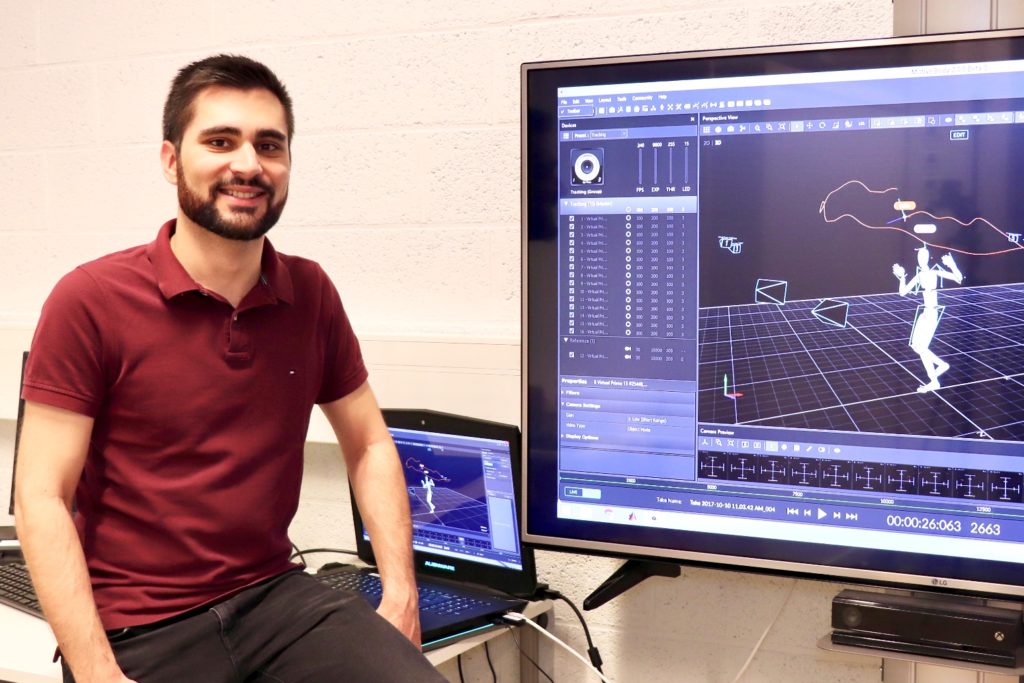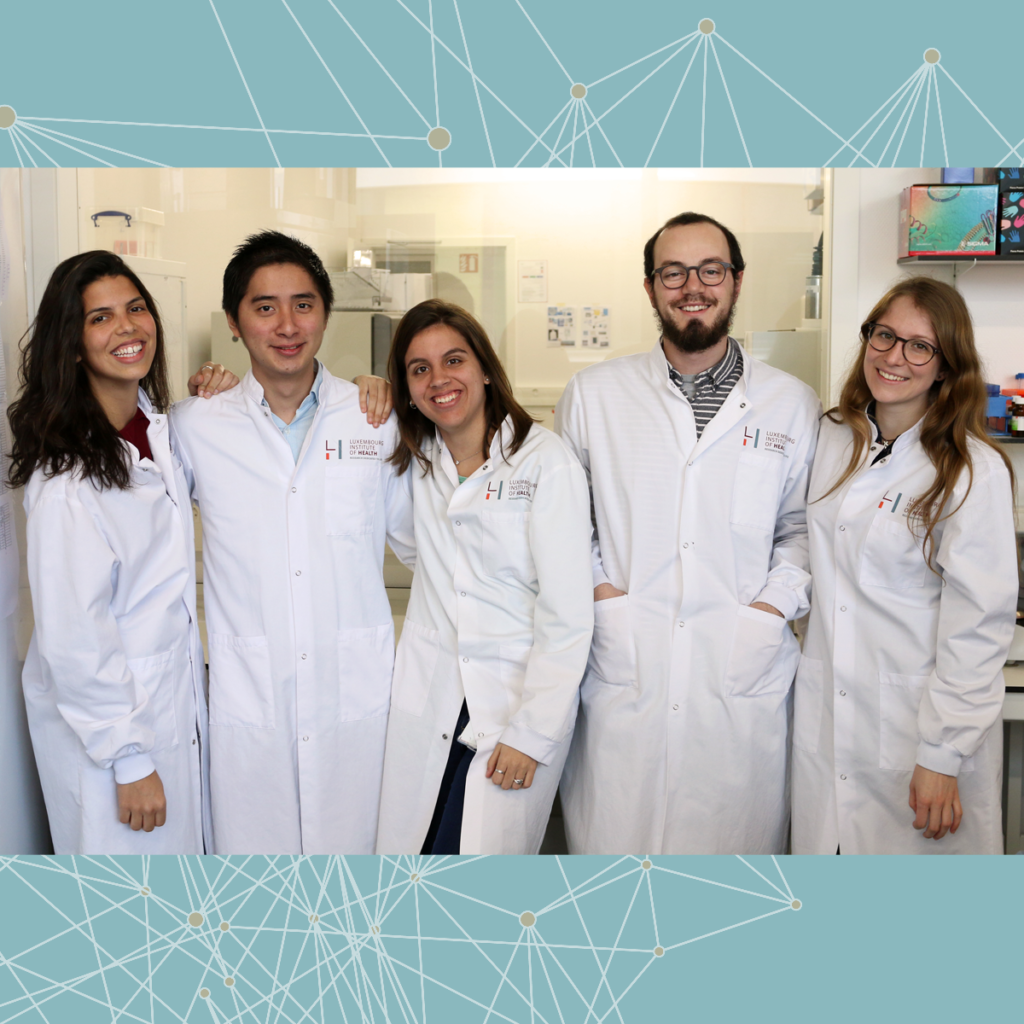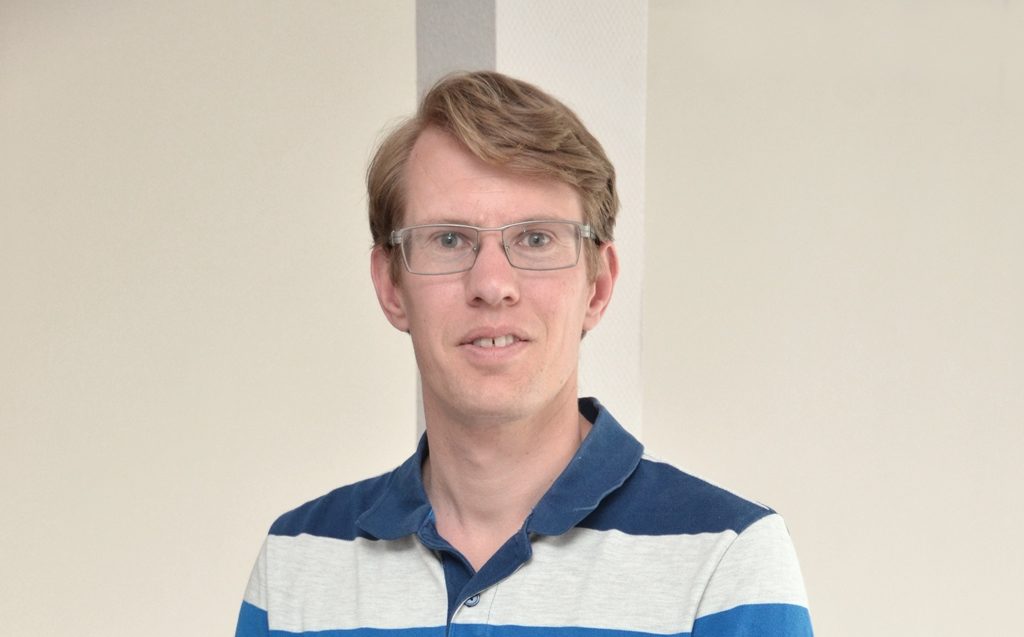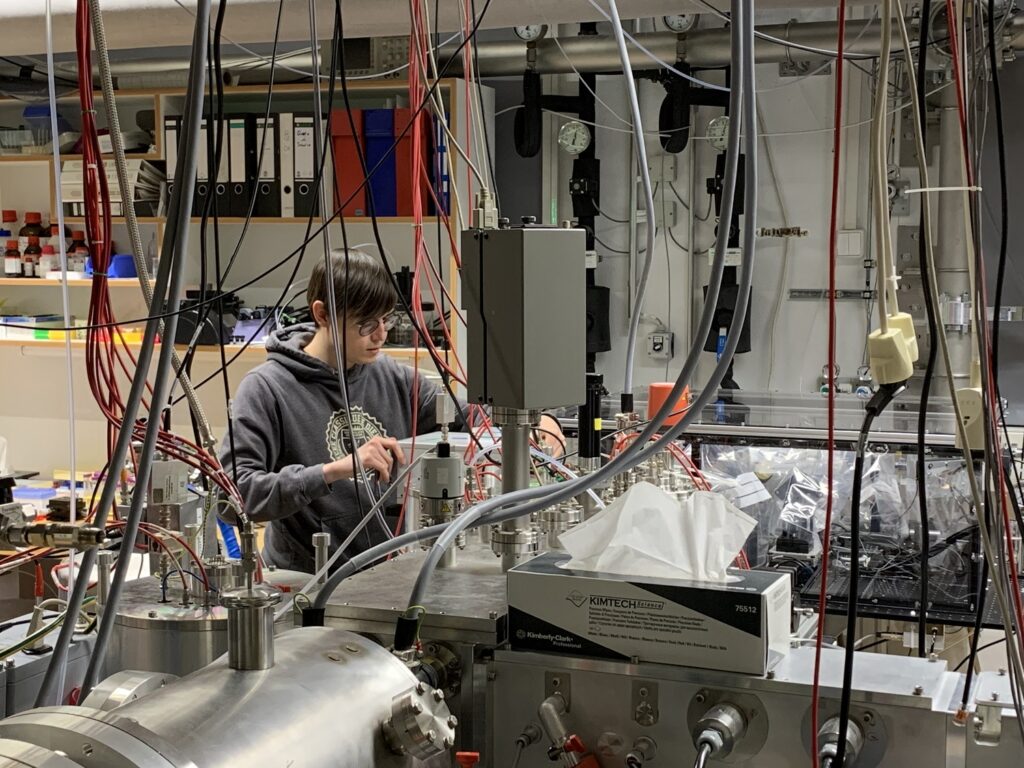In high school, Anna Schleimer thought everything there was to know in science was already known. When she discovered how many unanswered questions there still are, curiosity drove her to become a researcher. The Luxembourg national is now in the 1st year of her AFR PhD, in what is not your most common topic: As a marine biologist, Anna studies fin whales as part of her joint PhD at University of Groningen and University of St Andrews.
“Our knowledge about these animals is surprisingly sparse and we still do not know where they go in winter and where their calves are born”, Anna says about fin whales.
Fin whales are the second largest mammals in the world, outsized only by the blue whale. With only an estimated 50,000 – 90,000 fin whales left in the world, they are an endangered species, a consequence of intensive whale hunting in the past. According to WWF, nearly 750,000 animals were killed in areas of the Southern Hemisphere alone between 1904 and 1979.
Four fin whales recorded from bird’s eye view as part of the MICS (Mingan Island Cetacean Study) Anna is working on for her PhD. Copyright: ROM (Royal Ontario Museum) and MICS (Mingan Island Cetacean Study).
Field work only a small part of the work
“Against all expectations, I do not spend all day on a boat watching whales”, Anna says, adding: “While I do have two months of field work in summer when I will get to do boat surveys in Canada during which we collect photo-identification pictures and biopsy samples, I spend the other ten months of the year in the office analysing the data.”
In the first part of her PhD, Anna will study the population structure of fin whales in the North Atlantic, aiming to find out if all fin whales in the North Atlantic belong to one single, large population, or rather multiple small populations. This part of the project will help ensure the effective management of fin whales in the North Atlantic. Anna elaborates:
“In the other part of the PhD, I focus on the fin whales that aggregate every summer in the Gulf of St Lawrence by estimating abundance and survival from 2010 to 2016. In recent years, field researchers have noted alarmingly low numbers of calves in the area, which could be an indication for changes either in pregnancy rates or in calf mortality.
“I will analyse levels of progesterone in blubber samples to investigate if there have been any changes in pregnancy rates over the past years which could explain these observations.”
Working with highly elusive animals
Anna points out that even a seemingly easy task, such as estimating how abundant an animal is becomes a statistical challenge when working with animals as elusive as marine mammals:
“Working with marine mammals can be very challenging, because they are long-lived and far-ranging mammals that hide mostly below the water surface. The researcher only gets a brief glimpse, maybe enough to take a photograph, collect a sample or attach a tag, in order to learn more about them. I like the challenge and it makes every study unique.”

So why did Anna become a researcher? “In high school I was under the impression that we know everything there is to know in science. Little did I know how many open questions there are still left unanswered”, Anna says and adds: “So it is mainly out of curiosity that I chose the path of researcher in order to contribute to the increasing body of knowledge in biology and ecology.”
Luxembourg has a marine biology association
In addition to her PhD studies, Anna is the co-founder and Vice President of the Luxembourgish marine biology association ODYSSEA. She founded the association in 2013 with three fellow marine biologists – the goal is to promote marine research, conservation and awareness in Luxembourg:
“If Luxembourg can have an established space mining programme, then why not also a marine biology institute? The value of research lies beyond its economic value and I hope the diversity of research topics will keep growing in Luxembourg.”
Anna points out that even Luxembourg, despite being a landlocked country, has a very strong link to the oceans and that the country participates in conventions and conferences, such as the International Whaling Commission (IWC), the Convention on International Trade in Endangered Species of Wild Fauna and Flora (CITES), and the Convention on Migratory Species (CMS).
Ensuring research drives policies
The PhD is only the beginning of Anna’s career as a marine biologist, long-term she hopes to be able to help ensure research findings are actually applied:
“Like every researcher, I would like to see my work put to some use and it would be a great achievement if findings from my research had a direct impact on policies and management of fin whale populations in the North Atlantic. Long-term I would like to get more involved in the decision-making process to make sure the full potential of scientific findings is used to drive policies.”


Published 27 April 2017
About Spotlight on Young Researchers
Spotlight on Young Researchers is an FNR initiative to highlight early career researchers across the world who have a connection to Luxembourg. This article is the 8th in a series of around 20 articles, which will be published on a weekly basis. You can see more articles below as and when they are published.



